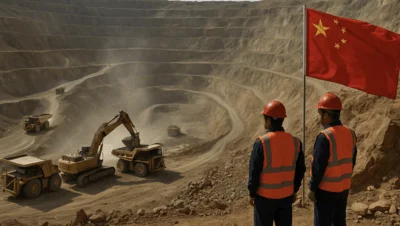Energy and Commerce Committee Chairman Frank Pallone, Jr. (D-NJ) delivered the following opening remarks today at an Energy Subcommittee hearing titled, “The CLEAN Future Act and Electric Transmission: Delivering Clean Power to the People:"
Today we continue our series of legislative hearings on H.R. 1512, The CLEAN Future Act, which I introduced with Chairmen Rush and Tonko to address the climate crisis and get us to a 100 percent clean economy no later than 2050.
One of the most important steps to combat the climate crisis is to make our power grid cleaner and more reliable. Today’s hearing focuses on provisions of the CLEAN Future Act - and three other bills - that support building a resilient electric transmission system to deliver clean, low-cost power from remote regions of the country to American cities, towns, and industry. Put simply, we will not be able to meet our clean energy goals unless we build more transmission.
I believe that the need to responsibly build more electric transmission is an issue that can unite Democrats and Republicans. After all, electric transmission delivers the inexpensive electricity that powers American industry and employs hundreds of thousands of American workers.
Despite these benefits, we have not yet done enough to ensure our transmission system is equipped to handle the challenges of the 21st century. As we deploy more offshore wind along our coasts, building the necessary transmission to hook this new generation into the grid will be a crucial step. Furthermore, extreme weather events, like the current unprecedented heat wave in the Pacific Northwest and the cold snap that brought down the Texas grid earlier this year, remind us of the continuing need to invest in our transmission system. The CLEAN Future Act makes those investments to modernize the grid and ensure that all Americans have access to clean, reliable power at a reasonable cost.
As we work to build out this essential infrastructure, however, we must make sure we do so responsibly, and don’t build more than is needed. New and innovative technologies can allow us to use our existing transmission infrastructure more efficiently.
Transmission planning processes can be made more transparent to the public, allowing us all to better understand how new transmission needs are identified. These and other measures will help protect ratepayers from unnecessary and excessive transmission infrastructure costs that we don’t really need.
The CLEAN Future Act includes key provisions that recognize the critical role transmission has to play in powering a clean energy economy, combating the climate crisis, improving reliability, and creating jobs for Americans. And it does all of this while also making sure we do not overburden ratepayers with unnecessary costs.
The legislation calls upon the Federal Energy Regulatory Commission (FERC) to reform its processes to require interregional transmission planning to support the integration of renewable energy resources. It also bolsters federal authority to require permitting for certain interstate transmission lines that will bring clean and low-cost energy to consumers. And it provides financial and technical assistance to state, local, and tribal governments to help with the permitting and siting of interstate transmission lines.
In addition to the CLEAN Future Act, we will consider three bills introduced by my colleagues Representatives Peters, Castor, and Casten. I want to thank them for their hard work on these bills.
If we put the right policies in place, electric transmission can help us tackle the climate crisis and build a clean, prosperous, and affordable energy future.
Thank you again, and I yield back.




